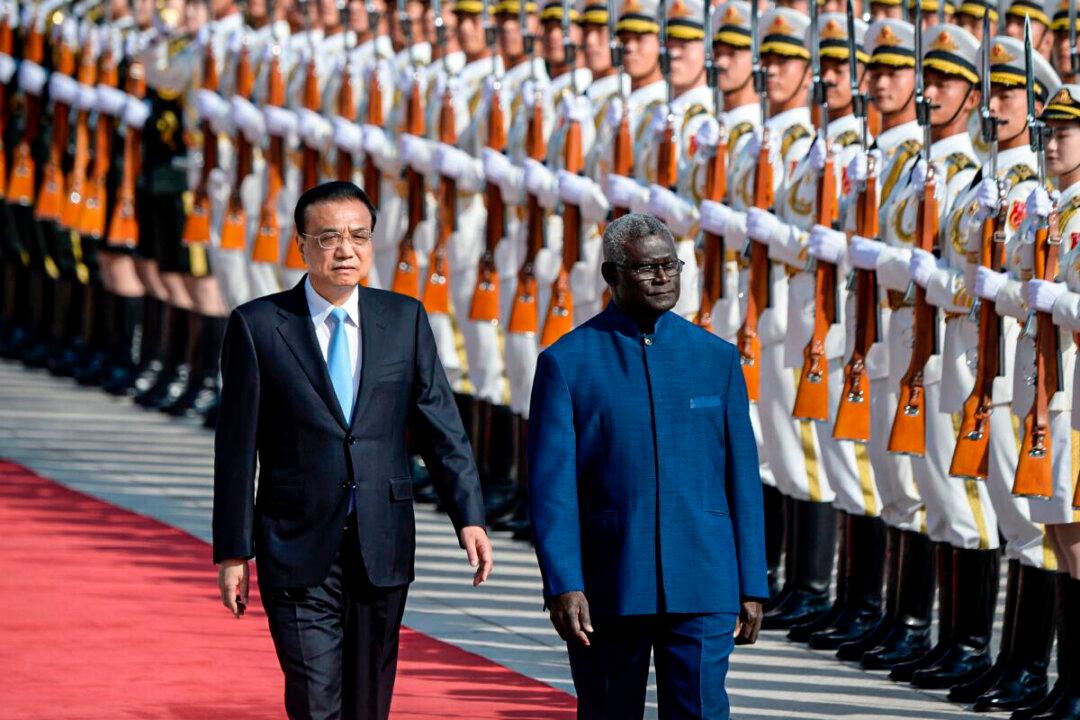Concerns have been raised about Chinese propaganda spreading through Pacific island nations with little oversight in order to stir up unease around Australia’s security alliances.
A new report by the Australian Strategic Policy Institute says Beijing is trying to stir up a negative perception of the trilateral AUKUS alliance between Australia, the United States and the United Kingdom.





